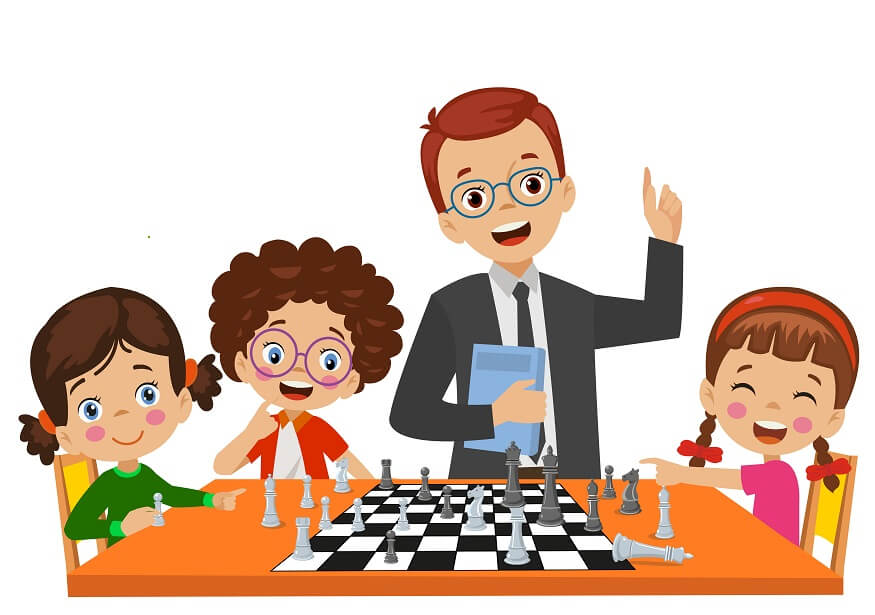As a society, we are always on the lookout for ways to cultivate our children’s minds, broaden their horizons, and provide them with the tools they’ll need to succeed in the rapidly changing world. One such method may be sitting quietly in the corner of your home, gathering dust: the chessboard. As ancient as it is timeless, the game of chess offers numerous benefits to young players, developing essential life skills from an early age.
Children can start playing chess as early as thе agе of 3 or 4, though thе ability to grasp and fully undеrstand thе game complexities typically develops as they get older. Around the age of 5 or 6, many children begin to demonstrate the cognitive skills necessary to learn and play chеss effectively. Howеvеr, it’s important to notе that еvеry child is diffеrеnt, and some may show an interest and aptitude for chеss еarliеr or latеr than others.
Encouraging children to play chеss can be a rewarding and enriching еxpеriеncе, regardless of their age or skill level. It can also be an excellent way for families to bond and spend quality timе togеthеr.
Also Read: World Chess Day: 20 Interesting facts about chess
Benefits of playing chess for children
Here we explore the myriad advantages of introducing your child to the mesmerising world of pawns and kings.
Intellectual Stimulation
Chess is a game of strategy and planning, requiring players to think ahead and anticipate their opponent’s moves. This encourages logical thinking and enhances problem-solving skills. It also promotes intellectual growth, as players must understand the intricate rules, recognise patterns, and devise effective strategies.
Memory Enhancement
Playing chess demands a good memory. Players must remember the positions of each piece on the board and the strategies they have used in the past. This exercise enhances memory and recall, leading to improved academic performance, particularly in subjects where memory plays a key role, like History and Biology.
Cultivates Patience and Concentration
Chess is not a game that can be rushed. Each move requires thought and consideration. Thus, chess promotes patience and fosters sustained concentration. These attributes are not only beneficial on the chessboard but also apply to everyday life and academic pursuits.
Boosts Creativity
While chess is a game of logic, it also encourages creativity. Each game is a new puzzle, requiring unique solutions. Players must think creatively to overcome their opponent, stimulating the right hemisphere of the brain, the part responsible for creativity.
Teaches the Importance of Planning and Foresight
Chess games are won by careful planning and foresight. Players must think several steps ahead and consider the possible outcomes of their actions. These skills are crucial for life, from planning an essay to setting long-term career goals.
Enhances Social Skills
Although seen as a quiet, introspective game, chess is also a social activity. Children who play chess often engage with others in clubs or tournaments, improving their communication skills and teaching them about sportsmanship and respecting their opponents.
Builds Resilience
In chess, as in life, there are victories and defeats. The game teaches children to handle loss gracefully and view it as a learning opportunity. This resilience is a valuable skill, equipping children to face challenges and setbacks in their lives.
Encourages Independence
Finally, chess is a game of self-reliance. Once the pieces are moving, it’s down to the individual player to make decisions and carry their plan forward. This aspect of the game fosters independence, self-confidence, and the ability to trust one’s instincts.
Also Read: The Importance of Family Time: Nurturing Bonds and Fostering Growth
Augments Decision-Making Skills
A crucial aspect of chess involves making vital decisions with each move. Understanding the consequences of their actions can help children develop solid decision-making skills, which can be applied to real-life situations. The ability to make smart, informed decisions is a lifelong advantage.
Enhances Mathematical Abilities
Although chess isn’t directly about numbers, it is grounded on mathematical principles and logical sequences. The need to calculate moves ahead and weigh the value of pieces aids in developing and enhancing mathematical thinking.
Broadens Cultural Awareness
Chess is a universal game, played worldwide and cutting across cultural barriers. This global popularity can encourage children to learn about different cultures and societies, broadening their understanding of the world and fostering a sense of global citizenship.
Promotes Time Management Skills
Chess often involves timing each player’s moves. Children who play timed games learn the importance of thinking quickly, making decisions under pressure, and managing their time effectively – all of which are crucial skills in many life and academic situations.
Enhances Reading and Language Skills
Research has shown that chess can improve reading skills and overall verbal aptitude. The concentration required in chess has a crossover effect on reading comprehension. Also, the use of descriptive notation in older chess books introduces children to a unique linguistic system, helping develop language skills.
Boosts Self-Esteem
Mastering the intricate strategies of chess and winning games can give children a great sense of achievement, boosting their self-esteem. On the other hand, even when they lose, they learn to re-evaluate their strategy and try again, which teaches resilience and can also enhance self-esteem.
Promotes Empathy and Emotional Intelligence
Chess players must anticipate their opponents’ moves, which entails putting themselves in their opponents’ position. Children’s empathy may improve thanks to this practise. Emotional intelligence can also be developed by controlling the emotions that come with the highs and lows of the game.
Also Read: The Benefits of Playing Board Games with Family
A game is not all that chess is. It is a teaching tool that aids in the social and cognitive development of kids. You may prepare your child for future success by introducing them to this enthralling game. It will provide them a pleasant, engaging approach to study and grow. The chess skills and lessons your child learns will be useful in all area of their lives, regardless matter whether they go on to become the next world champion or just play for fun.
EuroSchool blogs are a great resource for students taking online courses. EuroSchool’s blogs can help students succeed in their online learning courses by giving current information, advice, personal tales, and a venue for discussion and collaboration.










